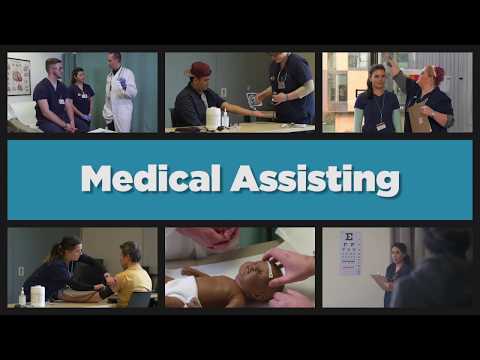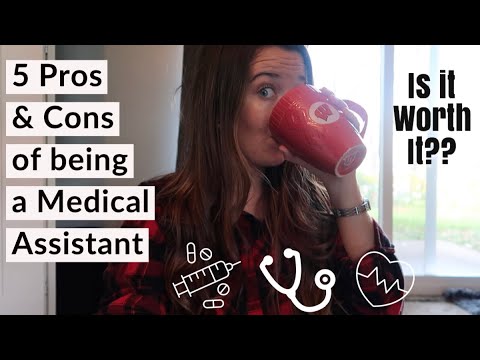What is Medical Assistance in Dying?
Contents [show]
Medical Assistance in Dying (MAiD) is a medical procedure that allows terminally ill patients to end their lives with the help of a doctor. If you are considering MAiD, it’s important to understand the requirements and the process. This blog post will provide you with everything you need to know about MAiD.
Checkout this video:
What is medical assistance in Dying?
Medical assistance in dying (MAID) is a term used to describe the process of a doctor or other medical professional providing assistance to a patient seeking to end their life. This can include prescribing a lethal dose of medication, as well as providing guidance and support throughout the process.
MAID is an option for patients who are suffering from a terminal illness or an irreversible condition that causes unbearable suffering. It is not a decision that is made lightly, and patients must undergo a rigorous assessment process in order to be eligible.
MAID is legal in some countries, including Canada, Belgium, and the Netherlands. In Canada, MAID was legalized in 2016 after a long and emotional debate. The issue continues to be divisive, with many people arguing that MAID is morally wrong and should not be an option for anyone.
The History of Medical Assistance in Dying
In 2015, the Supreme Court of Canada unanimously struck down sections of the Criminal Code that prohibited physician-assisted dying (PAD). In its ruling, the Court found that the sections violated Canadians’ charter rights to life, liberty and security of the person.
The decision was a response to a lawsuit brought by two British Columbia women, Gloria Taylor and Lee Carter. Taylor, who had been diagnosed with amyotrophic lateral sclerosis (ALS), also known as Lou Gehrig’s disease, wanted the option of physician-assisted death if her suffering became intolerable. Carter’s mother, Kay Carter, had advanced degenerative spine disease and chose to end her life with the help of a doctor in Switzerland.
The Supreme Court gave the federal government one year to come up with new laws regulating physician-assisted dying. In 2016, Parliament passed Bill C-14, which created a framework for medically assisted death in Canada. The legislation requires that patients seeking assisted death must be mentally competent adults who are suffering from a “grievous and irremediable” medical condition (including an illness, disease or disability) that causes enduring suffering that is intolerable to them.
Patients must also be at least 18 years old and have made a voluntary request for Medical Assistance in dying. A second request must be made in writing within 15 days of the first request. Two independent witnesses must sign both requests attesting that the patient is competent and acting freely without coercion.
Once these requirements are met, patients must undergo a waiting period of at least 15 days before they can receive medically assisted death. This waiting period can be waived if a patient’s natural death is imminent or if they are unable to give informed consent due to their medical condition.
The Pros and Cons of Medical Assistance in Dying
Medical assistance in dying (MAiD) is a hotly debated topic all over the world. Some people see it as a way to end suffering, while others see it as a slippery slope that could lead to euthanasia becoming more common. There is no right or wrong answer, but it is important to understand both sides of the debate before making a decision.
The pros of MAiD typically revolve around the idea of personal autonomy – the belief that each person has the right to make decisions about their own body and life, without interference from others. For people who are suffering from a terminal illness or in immense pain, MAiD can be seen as a way to regain control over their lives and end their suffering on their own terms.
The cons of MAiD typically center around the fear that it could be abused – for example, if people with non-terminal illnesses or minor discomforts begin to see it as a viable option. Critics also worry that MAiD could lead to euthanasia becoming more common, as terminally ill patients may feel pressure to choose death over putting their loved ones through the stress and expense of a long drawn-out death.
At the end of the day, whether or not to support MAiD is a personal decision. Some people feel very strongly one way or the other, while others remain undecided. The most important thing is to make sure you are well informed about the pros and cons before making a decision.
The medical and ethical considerations of Medical Assistance in Dying
Medical assistance in dying (MAID) is a controversial medical and ethical issue that has been the subject of much debate in recent years. MAID involves ending the life of a terminally ill patient at their request, and can be carried out by a physician or nurse practitioner.
There are many complex legal, medical, and ethical considerations involved in MAID, and the debate surrounding it is often emotional and heated. Supporters of MAID argue that it is a compassionate way to end the suffering of terminally ill patients, while opponents argue that it is morally wrong and could lead to abuse.
The issue of MAID is likely to continue to be debated in the years to come, as more countries grapple with how to deal with this sensitive issue.
The impact of Medical Assistance in Dying on society
Medical Assistance in Dying (MAID) is a controversial topic that has been making headlines in recent years. Proponents of MAID argue that it is a humane and dignified way for patients to end their lives, while opponents argue that it is a slippery slope that could lead to non-terminally ill patients seeking MAID.
There is no denying that MAID has the potential to impact society in a number of ways. For example, some people believe that MAID could lead to a decrease in funding for palliative care and suicidal ideation. In addition, MAID could also have an impact on the way we think about death and dying, and how we approach end-of-life care.
Only time will tell how Medical Assistance in Dying will ultimately impact society. However, it is clear that the conversation around MAID is one that we need to continue having as a society.
The legal landscape of Medical Assistance in Dying
In Canada, Medical Assistance in Dying (MAiD) became legal on June 17, 2016. The process involves a physician or nurse practitioner providing either lethal medication or administering a lethal injection to a person who meets certain eligibility requirements.
MAiD is a highly controversial topic, and there is still much public debate surrounding the issue. While some people argue that MAiD should be available to anyone who wishes to die, others contend that the process should be reserved for those who are terminally ill and suffering from unbearable pain.
The legal landscape surrounding MAiD is complex, and it varies from province to province. In some provinces, such as Quebec, MAiD is governed by provincial legislation. In others, like Ontario, the laws are set out in the Criminal Code of Canada.
At present, MAiD is only available to Canadian citizens and permanent residents who are aged 18 or over and are suffering from a grievous and irremediable medical condition (such as an incurable disease or disability). The person must also be experiencing intolerable suffering that cannot be relieved in any other way.
Two independent witnesses must attest to the fact that the person requesting MAiD is of sound mind and capable of making their own decisions. The request must also be made in writing.
If you are considering MAiD, it is important to speak with your doctor or another health care professional about your options. They will be able to provide you with information about the eligibility requirements and the process involved.
The future of Medical Assistance in Dying
In recent years, there has been a growing discussion about the future of medical assistance in dying (MAiD) in Canada. MAiD is currently only available to adults aged 18 and over who are suffering from a terminal illness and have been determined to have unbearable physical or psychological pain. However, there is a growing debate about whether MAiD should be expanded to include other groups of people, such as those who are not terminally ill but are suffering from irreversible physical or psychological conditions.
There are a number of different arguments for and against the expansion of MAiD. Those who support expansion argue that MAiD should be available to anyone who is suffering from an irreversible physical or psychological condition that causes them intolerable pain. They argue that everyone should have the right to choose when and how they die, and that MAiD can provide a dignified and humane death for those who are suffering.
Those who oppose expansion argue that MAiD should only be available to those who are terminally ill. They argue that expanding MAiD would open the door to non-terminally ill people requesting assistance to die, which could lead to abuse and involuntary euthanasia. They also argue that expanding MAiD would create a two-tiered system in which only those who can afford costly end-of-life care would have access to it, exacerbating existing inequalities in our healthcare system.
The debate about the future of MAiD is complex and sensitive, and there is no easy answer. What do you think? Should MAiD be expanded to include other groups of people?
The global perspective of Medical Assistance in Dying
Since the 1990s, a number of countries have legalized some form of medical assistance in dying (MAID), also known as physician-assisted suicide or physician-assisted death. In most cases, MAID is restricted to terminally ill adults who are suffering unbearably and who meet certain other conditions.
The Netherlands was the first country to legalize MAID, in 2001. Since then, Belgium, Luxembourg, Colombia, and Canada have also passed laws permitting MAID. In the United States MAID is currently legal in the states of Washington, Oregon, Montana, Vermont, California, Colorado, and Hawaii. Several other countries are currently considering legalization.
There is significant global variation in the rules governing MAID. For example, in the Netherlands and Belgium anyone over the age of 18 can request MAID; in Canada the eligibility age is 18 but may be raised to 21 in some provinces; and in Colombia the minimum age is 21. Some countries require that patients have a terminal illness with a prognosis of six months or less; others do not have this requirement.
In most jurisdictions where MAID is legal, patients must make two verbal requests separated by a period of 15 days or more before they can receive MAID. In addition, they must undergo a psychological evaluation to ensure that they are not suffering from depression or another mental illness that could impair their judgment. Most jurisdictions also require that two independent doctors confirm that the patient meets all legal requirements for MAID.
Once all these conditions have been met, patients must take the final step of self-administering the lethal medication prescribed by their doctor. In some jurisdictions (including Belgium), patients can request that their doctor administer the medication; however, this is generally not allowed in jurisdictions where assisted suicide is legal but physician-assisted suicide is not.
MAID remains a controversial procedure, and there is significant debate about whether it should be legalized at all. Proponents argue that it should be available to terminally ill patients who are suffering unbearably and who meet all other legal requirements; opponents argue that it violates principles of medical ethics and risks being abused. The debate is unlikely to be resolved anytime soon, and it will likely continue to vary from country to country depending on public opinion and legislative developments.
The personal stories of those affected by Medical Assistance in Dying
Medical Assistance in Dying (MAID) is a sensitive and controversial topic. Those who are for or against MAID often have strong personal opinions based on their own values and beliefs. Here, we share the stories of those who have been affected by MAID in some way – either through their own personal experience, or that of a loved one. These stories provide a human perspective on a complex issue, and help to illustrate the real-life implications of MAID.
The religious and spiritual implications of Medical Assistance in Dying
The religious and spiritual implications of Medical Assistance in Dying are complex and often highly personal. While some people may feel comfortable with the idea of medical assistance in dying, others may have strong reservations about it. In either case, it is important to be aware of the implications of this decision before making a final decision.
Religions and spiritual traditions vary widely in their views on medical assistance in dying. Some religions, such as Christianity and Islam, outright oppose the practice, while others, such as Buddhism and Hinduism, take a more nuanced view. In some cases, individual religious leaders or organizations may have taken a stance on the issue.
It is also important to consider the spiritual implications of medical assistance in dying. For some people, the idea of ending one’s life prematurely may go against their deeply held beliefs about the sanctity of life. Others may feel that medical assistance in dying is a way to avoid suffering and death with dignity.
Ultimately, the decision whether or not to receive medical assistance in dying is a personal one. It is important to consult with your religious leaders or spiritual advisors if you have questions about the implications of this decision for you and your beliefs.







